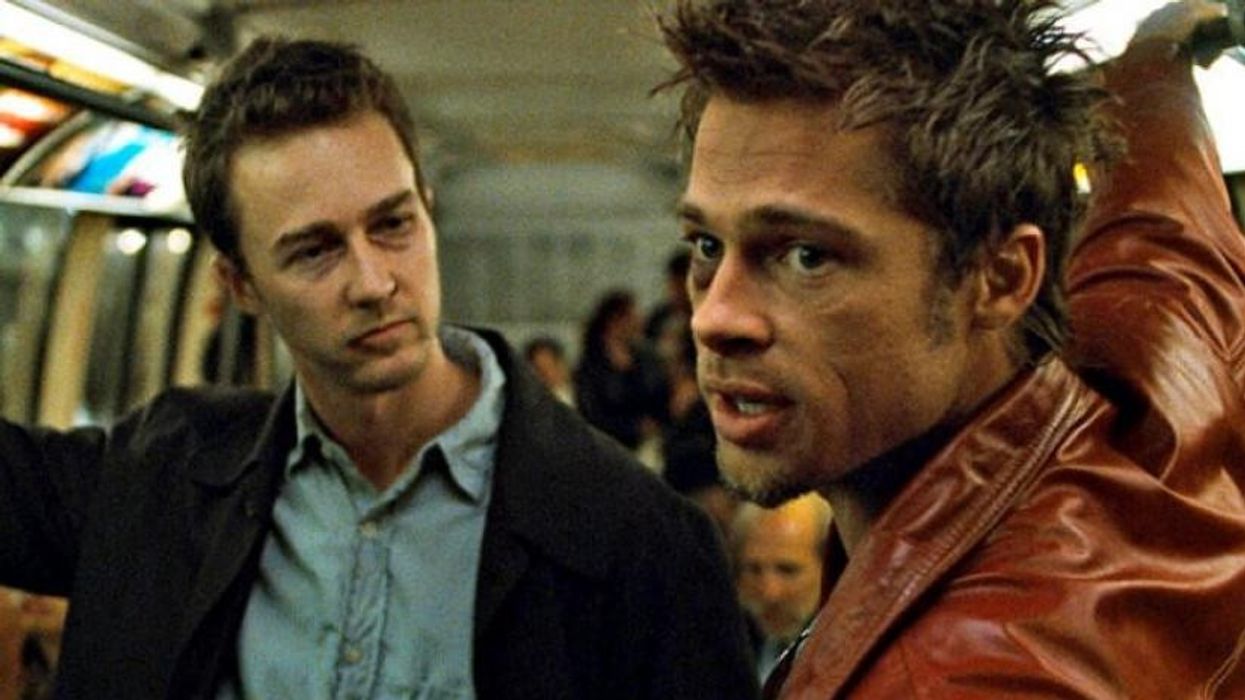
I feel like Fight Club is one of those movies that got so popular so fast that no one stopped to really analyze it until years later. The movie is an allegory for toxic masculinity, yet that hasn’t stopped incels and others to miss the message of them ovie and hold up its story like the bible.
Yet this total bungling of media literacy and analysis is not the fault of David Fincher, the director of the 1999 film.
In a recent interview with The Guardian, Fincher said, “I’m not responsible for how people interpret things,” he continued, “Language evolves. Symbols evolve.”
When asked about how the movie became a “touchstone” for the politically far-right, Fincher responded, “OK, fine. It’s one of many touchstones in their lexicography.” He went on to say, “We didn’t make it for them, but people will see what they’re going to see in a Norman Rockwell painting, or [Pablo Picasso’s] Guernica.”
Fincher expanded, saying, “It’s impossible for me to imagine that people don’t understand that [Brad Pitt’s Fight Club character] Tyler Durden is a negative influence. People who can’t understand that, I don’t know how to respond and I don’t know how to help them.”
I think this is a pretty straightforward answer. It’s unfair to hold filmmakers responsible for the audience’s actions. Especially when their films explicitly showcase a different message.
Let me know what you think in the comments.
Source: The Independent
Author: Jason Hellerman
This article comes from No Film School and can be read on the original site.
